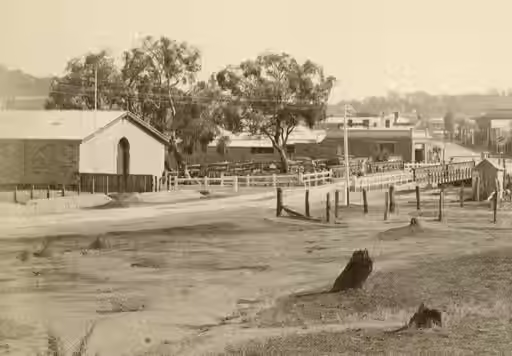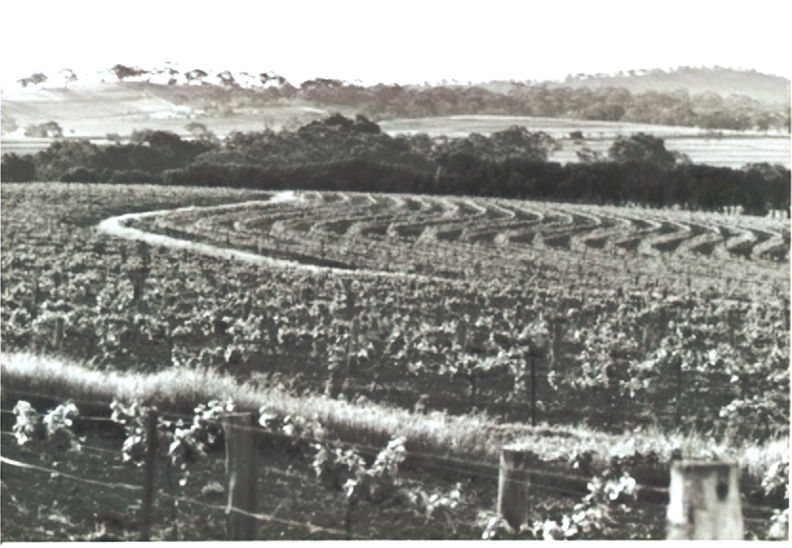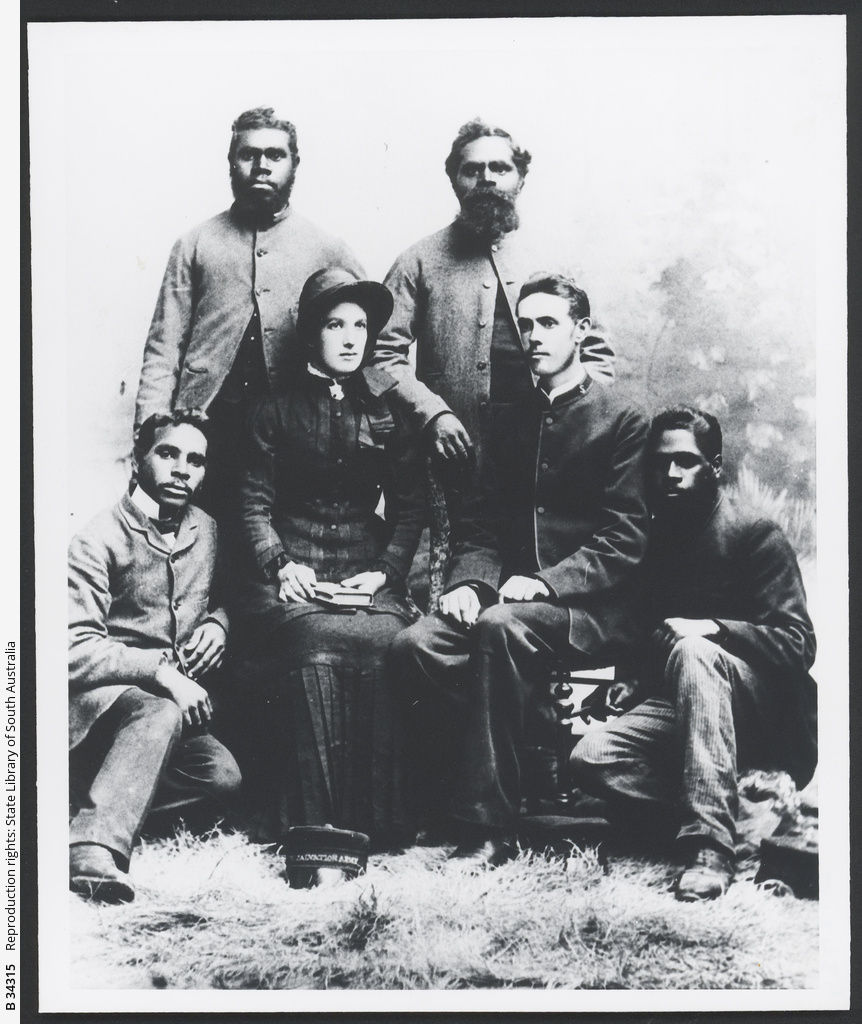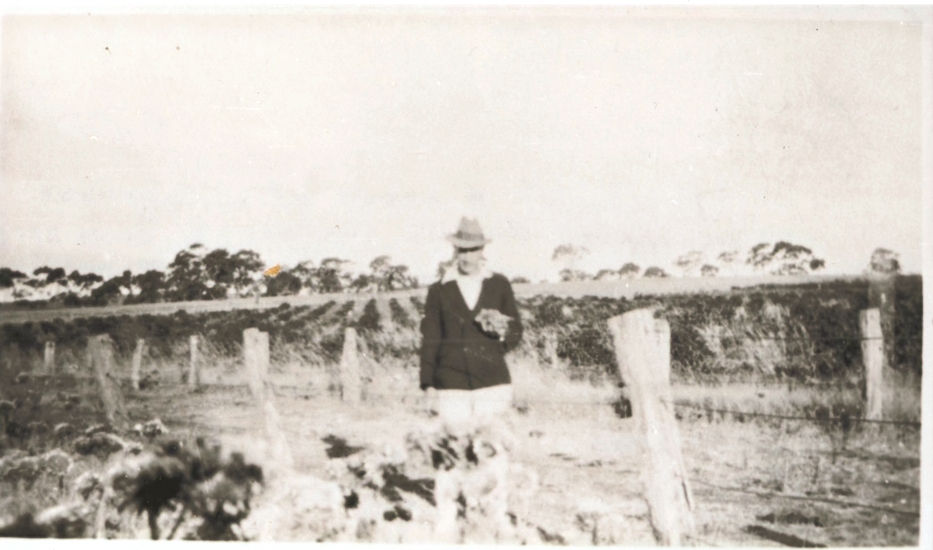Dr. Bain and Watervale Wine
- Jon Ruwolt
- Aug 23, 2025
- 10 min read
If any one has the welfare of Clare at heart it is Dr. Bain, who, besides lending valuable aid to others, enterprisingly launches out on his own account.
The genial and generous medico has taken up sections at the head of Hill River during the last three years, and has put a considerable area under vines and fruit- trees.
Accepting the invitation of Mr. Treleaven I drove out to have a look at this property.
At the butter factory we saw thirteen carts arriving with their morning's milk;
and continuing on along the highway passed no less than a dozen "sundowners", some tramping, others resting on the wayside beneath the shade of the trees. What a strange life !

With the shearing and harvest finished the "sundowner" picks up a precarious living till the year comes round again. With his swag and "billy" he tramps the country, making a station or farmhouse at night, where he begs the where-withall to appease his appetite and quench his thirst.
Very often it is beneath the canopy of heaven he sleeps, and, up at sunrise, he shoulders his "bluey" and is off again.
He smokes his pipe, looks healthy and contented, and who shall say the sundowner does not enjoy life ?
Ascending an incline we soon had a panoramic view of the country, the ranges encircling it giving the landscape the appearance of a vast amphitheatre.
The doctor had arrived before us, and was walking about his young eighty - acre vineyard. This was an old wheat section, but it was worked to such an extent that in the end it would not produce anything.
The vines, principally Carbenet and Shiraz, were planted some years ago, but owing to 'misses,' &c., which occasioned replanting, some are only a year old.
A very bad season has been experienced. It was first too wet and then too dry, so the land could not be worked. As a result the "stinkwort" has got a hold and it is found very difficult to get rid of this growth.
There is an eighty-acre section under wattles — and here it may be mentioned that the revenue to the district for wattle-bark this year has been considerably over £1,000.
The doctor told me that it is the best bark grown in the colony, analysis showing that it contains a higher percentage of tannic acid than any other produced in South Australia.
Continuing our journey a little distance down the road we arrived at Dr. Bain's other section, of which twenty acres are under vineyard — Zante currants and wine grapes, ten acres of each— and twenty acres of orchard.
The apples, which are all of the best keeping varieties, look very well, those in the virgin soil doing famously. The pears have made excellent headway, and some of the trees have some lovely fruit on them.
The doctor thinks the profit is in winemaking, not in selling the grapes; and therefore it is his intention to manipulate his own berries. He will start with a small cellar, and gradually work up as the supply increases.

For the convenience of the dairy farmers a little creamery has been started in conjunction with the Clare factory. Seventy-one gallons a day were coming in at the time of my visit, but it was at a bad time of the season when operations were started.
However, the industry is catching on; one man alone is going in for forty cows, and next year the supply is expected to reach 300 gallons a day.
With the purchase of the land, planting, and improvements Dr. Bain has already spent £3,500 on his property, and every one wishes him that success which he richly deserves. .
I had reluctantly to say au-revoir to Clare, and catching the afternoon's coach bound for Saddleworth had a pleasant drive to Watervale, where I stayed for the night.

Sweet Watervale !
I shall ever retain delightful memories of thee. Thy sleeping valleys and laughing uplands, what glorious prospects they foretell.
Vineyards deck the gentle slopes, and from the heavy, healthy foliage clusters of purple berries blushingly peep forth.
And Nature lavishes her kindness on animate and inanimate alike — fair Hebe catches a delicate bloom from the charming surroundings, the cattle browse contentedly on the hillside, and everywhere the landscape speaks eloquently of peace and returning prosperity.
But oh, how quiet the township ! 'Tis like a deserted village : everything seems in a state of coma.
The rattling of the coach is almost the only noise by day. and the Salvation Army the only excitement by night.
On the highway on Wednesday evening three gallant officers were earnestly preaching in their characteristic style. They were anxiously waiting to receive a brother into the fold when weary and worn I passed by the little band.

They made vigorous efforts to embrace me, but the harsh flare of the torches and the smell of paraffin oil was too much — I retreated.

But as to the vineyards and vintage. Well, I had no kind friend to drive me round, so I had to fall back on Shanks's pony.
An enjoyable chat with Mr. Cole, the popular village schoolmaster, and I was climbing the rise leading to Spring Vale, the trim and pretty property of Messrs. Sobels & Buring.
The former gentleman I found in the spacious cellars, and from him I gleaned that the vineyards were carrying a very good crop.
As mentioned in a previous article, the partnership have fifty acres of wine grapes at Leasingham. These vines are thirty years old, and it is expected to pick 100 tons of fruit from them.
Then there is another forty -acre vine-yard at Watervale, also about thirty years old, and from this the yield will average 2 tons to the acre.
In addition there are thirty acres under young vines — two years old. This plantation, which looks the picture of health, is coming on very nicely, and Mr. Sobels is very satisfied with the progress made.
The vines are perfectly free of disease, but they are regularly sulphured to prevent the oidium ('powdery mildew') attacking them.

Winemaking should be in full swing at Spring Vale by now, and it is expected to turn out between forty and fifty thousand gallons of the cheering cup.
Mr. Sobels told me they have all the best vines, and very few of the poorer sorts planted. This year the price for inferior grapes will be £1 lower than that given twelve months ago, owing to the better stuff coming into the market and other vineyards springing up.

The firm under notice will buy the grapes from the growers round about Watervale, but 'unfortunately,' said Mr. Sobels, "there are not enough grapes, and we could do with a great deal more. We will not be able to buy 50 tons in the whole district."
Mr. Sobels looks upon Watervale as one of the finest districts in the whole of the colonies for vine-growing and winemaking.
And he says they have not got the difficulty experienced in Angaston as to the inferior article to contend with — they plant nothing but the best sorts.
Winemaking has been proceeding at Spring Vale for about twenty-six years, and some of the first samples sent home come from these cellars.
Mr. Burgoyne : (illustrated below) was the pioneer of Australian wine exports. He set up shop on Old Bond Street, London in 1871.
Messrs. Sobels & Buring consign their wines to Mr. Burgoyne. It is some twenty years

since the first shipment from the Spring Vale cellars took place, and Mr. Sobels says they have been sending ever since. There are about 100,000 gallons on hand at the present time.
Mr. E. B. Young, in his report on the recent wine sale in London, said : — "A question frequently put to me by those at the sale was — ' Will the growers follow on the same quality?'
This is evidently very important, and much of the future success of the trade depends upon a uniform character and quality of wine being followed on consistently, that; when a merchant buys a particular brand he will be able to obtain the same wine again in the future.
Some complaints were made that often this is not the case with Australian wines, and that the same brands differ in quality.
"I read this on my return to town, and thought how it coincided with Mr. Sobel's views on the question of the home market.
He is fully convinced that South Australia can produce a first-class article, and one that will be prized at home when it is better known.
Like any wise vigneron he says we must send the best article to the old country, for with his foresight he realizes that if an inferior stuff is foisted on the market it will at once create a prejudice and seriously damage all hopes of a prosperous trade."
After refreshing myself with a delicious sample of claret — and Messrs. Sobels and Buring have made a name for themselves with their claret — I was directed to Mr. W. G. Treloar's prettily situated and nicely kept homestead of 150 acres.
There are 10 acres of vineyard in full bearing, and another 15 acres which have been in three years, are making very satisfactory progress.
A very good crop was showing at the time of my visit, and this I learned was the case throughout the district.
There are small cellars on the property, and Mr. Treloar says they expect to make between two and three thousand gallons of wine. It will not be possible to handle the whole of the yield, and the surplus grapes will be sold to Messrs. Sobels & Buring.
The vines are very free of disease a little oidium only showing itself. But sulphuring is relied on to put a check on this infection.

Six acres are under orchard, and the trees apples principally, also apricots and peaches, are looking very well. The establishment of a creamery in the village gave a fillip to dairy farming, and a number of the settlers make a very respectable profit out of the industry.
Mr. Treloar informed me that they have fifty cows but not many are in milk at the present time. It is expected, however to have twenty-five in shortly, but with three bails going Mr. Treloar says they can soon polish that number off.
The milk is disposed of to the creamery.
It was now dusk, but I thought I should make an effort to get to Mr. Mayr's on the high road to Saddleworth. Two little boys misdirected me, evidently for a lark, as they would term it, and I made Mr. Richmond's residence.
The popular stockbreeder, however, put me on to a back track, and after some cross-country work I arrived as Mayr's.
A grizzly dog, who evidently thought I was a tax gatherer or a bailiff, or some uncanny

creature, greeted me with some decidedly unpleasant pianissimo growls, but, thank goodness, he expressed his distaste in nothing more than growls. Miss Mayr called her father; paterfamilias answered with a shrill 'Ay, ay' : - I went careering round the house in search of the 'Ay, ay !' and the old man chased me.
We, however, subsequently met each other, and Mr. Mayr scrutinized me as critically as did his canine.
In 1852 four acres of vines were planted by Mr Mayr in the Watervale district, but it was not until 1856 the first wine was made. Close to the township is ROSENBERG, the homestead of Mr V Mayr, surrounding which 34 acres of vines are in full bearing, and attached to which are the wine cellars, in which about 4,000 gallons of wine are made each year for colonial trade.
Everywhere I had been met with open arms, and every one was only too ready to give me information or to put me in the way of procuring it; but this delightful foreigner was a type of his own.
He told me in a gruff voice, with a foreign accent, that he 'didn't believe in them newspapers.' He was not going to expose his business to the gaze of the public.
I told him that what benefited the industry would benefit him, and that the dissemination of facts and figures in the Press was highly desirable.
But be had got on all his life without it, so he told me, and did not intend to comply with my wish. Pitying his ignorance and dog-in-the-manger ideas, I bade the old hermit a good-night and made direct for the hostelry.
But I defeated the old man in spite of himself, for I learned from Mr. Treloar that he will make between three and four thousand gallons of wine.
Mr. J. Ward, who has fifteen or sixteen acres on the Wakefield, will turn out be-tween one and two thousand gallons, so approximately some 60,000 gallons of wine should be made in the district this vintage.
I had not time to visit 'St. Andrews,' Mr. Lyall's property, situated on the Wakefield, distant about four miles, but Mr. Treloar informed me that it was the most advanced place in the district for its age.
There are 140 acres under vines three years old, and the present is the first crop. Several acres are irrigated, and Mr. Treloar says it is really wonderful to see the growth of the maize, which is coming on in six stages.
'St. Andrews' sends away between 100 and 150 Ib. of butter in the week.

Up in the morning early I caught the coach from Clare, and had a delightful ride to Saddleworth, where I took the train for Adelaide.
During the journey I learned from Mr. Castine, M.P., that within five miles of Riverton 400 acres are under wine grapes.
The vines, which have been planted during the last few years, are all of the choicest kinds, and they are now coming into bearing and look very well. And there is no sign of disease, so Mr. Castine told me.
A large portion of the land planted belongs to the South Australian Company, and the leases are for ten years.
The principal growers are Dr. Allwork, and Messrs. J. Bosworth, F. Norton, G. Parnell, Burrows, M. Nash, J. W. Castine, M.P., and H. Horner.
I was informed that it is the intention of the South Australian Company to assist the growers to start a winery, which, if everything goes well, will be erected and ready to treat next year's crop.






Thank You.... I just love any information associated with the Clare Valley and I have purchased a block in Sevenhill...Just a bee's whisker down from the Jesuit Church. Adelaide has changed.....not the same place that it used to be! I hope I one day live in the Clare Valley.... and die in God's Country. I will drink a toast to Dickie Hawker before I pass !!!!